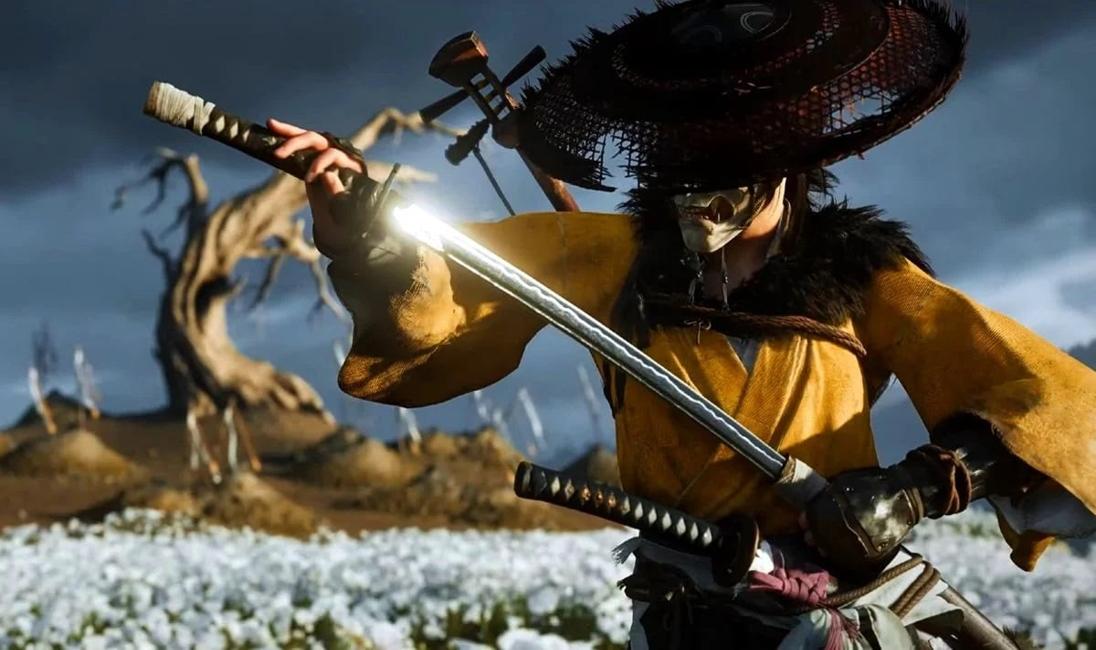Okay, let's talk about Yotei. Specifically, the "Ghost of Yotei." Sounds spooky, right? Well, it's not a literal ghost, but a sensation in the gaming world, that’s oddly thriving. Despite a rather vocal boycott. I know, I know – gaming controversies are about as common as lag spikes, but this one…this one has layers.
Think of it this way: you’ve got a game, hyped to the moon, promising innovative gameplay and breathtaking graphics. Then, almost overnight, a segment of the player base decides it's, for lack of a better word, persona non grata. Usually, that spells doom. Tanking sales, angry forum posts, the whole shebang. But not this time. No, sir. The Ghost of Yotei, against all odds, is doing just fine. Actually, more than fine. It’s killing it in sales. What gives?
Why the Boycott?
That's the million-dollar question, isn't it? And honestly, the answer is a bit of a tangled mess. A big reason cited? Monetization. Surprise! Gamers not liking paying for stuff. The game employed...let's call them "aggressive" monetization tactics. Think loot boxes, premium currency that’s practically required to progress, and a battle pass that feels more like a second job than a fun bonus. Some say, they went too far.
But here’s where it gets interesting. The backlash wasn’t universal. A significant portion of the player base either didn’t mind the monetization, or actively defended it. Maybe they saw it as a necessary evil to support ongoing development. Maybe they’re just whales. Or maybe, just maybe, they genuinely enjoyed the game despite its flaws. We are all familiar with the game Assassin's Creed Shadows on Nintendo Switch?
And that's crucial, the “despite its flaws” part. Because the Ghost of Yotei, underneath all the microtransactions and battle passes, is actually a pretty darn good game. Which brings me to my next point...
The Allure of Yotei: Gameplay Trumps All?
Let's be real, gameplay is king. Always has been, always will be. You can have the prettiest graphics, the most immersive story, the most advanced technology. But if the core gameplay loop isn't engaging, it's all for naught. And the Ghost of Yotei, despite its controversies, absolutely nails the gameplay. The combat is fluid and satisfying, the exploration is rewarding, and the world is richly detailed and full of secrets.
I initially thought that the boycott would severely impact sales, but it seems that the fundamental enjoyment people derive from playing the game is proving to be a stronger force. Think about it – how many times have you put up with a flawed game because the core gameplay was just too addictive to resist? I know I have. Plenty of times. It's almost like that saying, "Love is blind." Only, in this case, it's "Gaming is forgiving." Or maybe “Gaming is addicted” – but that doesn’t have the same ring to it.
But! There’s another, equally important factor at play here…
The Silent Majority and the Echo Chamber
The internet, bless its chaotic heart, can be an echo chamber. A small, vocal minority can create the illusion of widespread outrage. And sometimes that's legitimate. But just as often, it's a case of the squeaky wheel getting all the grease. The silent majority, the players who are quietly enjoying the game, are often drowned out by the noise.
These players might not be actively participating in the boycott. They might not be flooding forums with complaints. They're just…playing the game. And buying it. And recommending it to their friends. They like the game, and they’re not ashamed to admit it. This is key – the perception of an issue online does not always align with the broader reality.
Think about it this way: online communities are a concentrated group of individuals with strong opinions. The “average” gamer isn’t glued to forums, or crafting lengthy Reddit posts. They’re just chilling and gaming. And those gamers? They’re often the ones quietly keeping sales afloat.
It’s actually quite fascinating how this plays out. And it begs the question...
Is This The New Normal?
Are we entering an era where games can weather controversy and aggressive monetization, as long as the core gameplay is solid? Is the boycott, as a form of consumer activism, losing its teeth? It’s difficult to say for sure.
The success of Ghost of Yotei could be an anomaly. A perfect storm of engaging gameplay, a dedicated fanbase, and a relatively muted backlash outside of specific online circles. Or, it could be a sign of things to come. A future where developers feel emboldened to push the boundaries of monetization, knowing that a significant portion of the player base will tolerate it, as long as the game is fun.
The frustrating thing about this topic is that there's no easy answer. Gaming is a complex ecosystem, with constantly shifting dynamics. Consumer tastes are fickle. What works today might fail miserably tomorrow.
But one thing is clear: the Ghost of Yotei's unexpected success has thrown a wrench into the conventional wisdom. It's a reminder that the relationship between developers and players is far more nuanced than we often assume. And that sometimes, just sometimes, a good game can overcome even the most passionate boycott.
FAQ: Your Questions About The Ghost Of Yotei
Why did The Ghost of Yotei face a boycott?
The primary reason for the boycott stemmed from the game's aggressive monetization practices. Players felt that the reliance on loot boxes, premium currency, and a demanding battle pass hindered their progress and detracted from the overall enjoyment of the game. It felt less like playing a game, and more like working a second job, to many.
How can Yotei sell so well despite the boycott?
Several factors contribute to this. The core gameplay is undeniably engaging, with fluid combat, rewarding exploration, and a detailed world. This draws in players who prioritize fun over everything else. Also, the silent majority of gamers who enjoy the game may not participate in online boycotts, quietly supporting the game's sales.
Is The Ghost of Yotei actually a good game?
That's subjective, of course! But many players find the core gameplay loop compelling. Even critics who acknowledge the monetization issues often praise the combat, world design, and overall polish of the game. If you're on the fence, watching some gameplay videos might help you decide if it's worth your time (and money).
Could The Ghost of Yotei’s success impact the future of game monetization?
It's possible. If developers see that a game can thrive despite aggressive monetization, they might be more inclined to implement similar systems in their own games. This could lead to a shift in the industry, where gameplay quality becomes even more crucial to offset potentially unpopular monetization strategies.





















